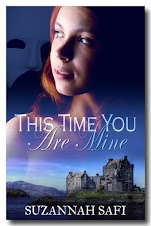
New York publishers expect you to abide by their submission rules and so do electronic publishers. One pub might not agree with what another wants-does that matter? Yes. As authors, we need to pay attention to these differences because we are the ones asking them to take a look at our mss. for possible publication. No matter how arbitrary a rule may seem to us, following it may make the difference in your manuscript getting looked at because you did. So:
Rule 1. First, know if the publisher you're submitting to is open for submissions without an agent. Many NY pubs are not. If they are open, you should find out if they prefer to be queried first, and if they want, instead of a full ms., just a partial. Those hurdles passed, the author should know if the publisher is open to submissions or closed, because many of the electronic pubs close periodically to catch up on acquired mss. The author should also know if the epub is taking in-house submissions only or is open to any author. All of this can be found on their individual
websites.
Rule 2. Be sure your work is in a genre that the publisher you've chosen is interested in publishing. This also is on the websites.
Rule 3. Make certain what you send has been edited very carefully. Spell check, yes, but more than that--gone over to check for typos such as own, when you meant won. Be sure you know the meaning of every word you've placed in the ms. If you wrote "He peaked at me." Did you mean that? He can peak "with" you, if you meant that, but otherwise he peeked "at" you.
Rule 4. If rejected, never send a nasty letter or email telling them they've lost the chance at a masterpiece because they're too stupid to know one when they see it. They do know--and yours isn't one, at least not yet. Get over it. You can be sure your nasty letter or email will be shared with other editors from other publishers. If you persist in this behavior, eventually no pub will look at anything you send. Remember even published authors get rejected. Getting angry or upset is fine. Just don't blame the publisher. Always be polite. If they suggested you should do specific things to improve your writing-do them.
Rule 5. If interested in submitting to a small publisher, research who some of their other authors are. If you can discover a name you recognize from one list or another, email that author and ask how they like their publisher. Would they recommend that pub? Small pubs, including epubs, go down the drain oftener than you might think. Beforehand knowledge is a good to have. You don't think this happens to NY pubs? It does. I had two books orphaned from failed NY pubs. I did manage to resell them, but it took time. As a general rule, the longer a small pub has been in business the better.
Rule 6. After sending in a submission, don't bombard the pub with queries about its status. The only possible reason to email them is this: If you don't get a return email to say they received it, then you can ask if they did, in fact, receive what you sent on such and such a date.
Things do get lost in cyberspace sometimes. I noticed in my "Sent" mail folder I'd sent a partial ms. to a publisher six months before. I 'd failed to check for a response. So six months had gone by before I emailed them asking if they ever did get that partial. They hadn't. Resent it and got a request for the entire ms. a few days later. Along came a contract soon after that.
If you did get a "got it" response, review what their submission guidelines said about when you could expect an acceptance or rejection. If they say two months, wait three before asking if they had a chance to look at your ms. Pubs get backlogged often.
Rule 7. You got accepted and now have an editor. You may know more about your story than that editor, but it's very likely you don't know as much about house style, grammar and other editorial requirements. If you happen to get an occasional dumb question, always be polite. And remember, if an editor doesn't understand a part of what you've written, it's likely a reader won't either.
Also each pub has certain house styles that may bother you. Don't argue, even if means you have to write blonde instead of blond, if this happens to be a house style. Do it. You can't fight house styles. But if, for example, you've written chaise longue and the editor changes the last word to lounge, simply politely quote the dictionary to that editor and stet the word, knowing you're right.
Follow these rules and don't email others bad mouthing any editors because they're giving you a hard time. It happens. As I said before, word gets around far quicker than you realize when you diss people online. If you pay attention, you can always learn your writing weaknesses from editors. I certainly have, and it's made me less likely to make the same ones next time I write.
Visit author's website at www.JaneToombs.com










No comments:
Post a Comment